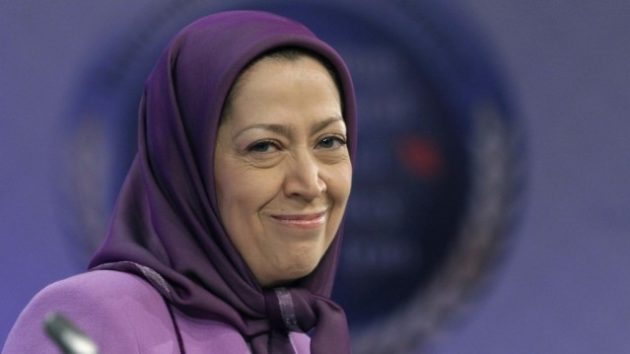Former Senior State Department Official: Iranian Opposition leader Should be Heard in Washington
WASHINGTON DC/PRNewswire/ — Ambassador Lincoln Bloomfield, a former senior U.S. State Department official strongly defended the scheduled testimony of Iranian opposition leader, Maryam Rajavi [picture above] before the U.S. Congress.
On Wednesday, the House Foreign Affairs Subcommittee on Terrorism, Nonproliferation and Trade will hear views of Maryam Rajavi, the president of the National Council of Resistance of Iran (NCRI) a coalition of Iranian opposition groups that includes the People’s Mojahedin Organization of Iran (MeK) as its main constituent.
Maryam Rajavi is scheduled to appear by videoconference from the NCRI headquarters in suburbs of Paris.
Bloomfield, the Assistant Secretary of State for Political Military Affairs in the George W. Bush administration in a statement said:
“It was predictable that with the National Council of Resistance of Iran and its component entities including the MEK having successfully challenged and removed all terrorism listings in Europe and North America, NCRI leader Maryam Rajavi would at some point be given the opportunity to be heard in Washington; it was perhaps equally predictable that longstanding allegations of terrorism and cult-like behavior by this group would be revived.”
According to Bloomfield who held senior positions at the State and Defense Departments in several administrations “not one person in the NCRI or its component entities including the MEK has ever been prosecuted and convicted of an act of terrorism. Judicial review in several countries has debunked allegations of terrorism by the MEK. The Americans assassinated in Iran in the 1970s were not killed by the organization now headed by Mrs. Rajavi, but by extreme secular leftists who broke away from the Islamic MEK after much of its leadership and active membership had been arrested and executed or imprisoned by the Shah.”
Bloomfield who as former Deputy Assistant Secretary of State for Near Eastern Affairs has had a special focus on the Middle East stressed:
At the time of Iran’s revolution in 1979, Ayatollah Khomeini eagerly sought the support of the head of the MEK, Massoud Rajavi, for his new constitution precisely because that organization enjoyed broad popular support particularly among Iranian women, youth, intellectuals and minority communities; Mr. Rajavi withheld his support from Khomeini’s constitution because it combined religious and political authority and was undemocratic. The fundamentalist regime in Iran and the MEK have had such a bitter history since 1979 precisely because the progressive and modern Islam embraced by the resistance poses a direct threat to the continued rule of fundamentalism.
Bloomfield has conducted exhaustive reviews and research on the Mek and has authored a couple of books and studies on the subject. He rebuked allegations against the Iranian opposition and while pointing to extensive demonizing campaign of Tehran regarding its arch opponents said:
Western governments have for many years been asked by the Iranian regime to restrict the MEK as a terror organization. Iran’s Intelligence Ministry has repeatedly been revealed paying agents or seeking to pay trusted sources in several countries to propagate allegations against the MEK that are unsupported by any historical records. Yet many of these defamatory allegations continue to be repeated by the American media and current or former U.S. officials, none of whom have produced credible evidence to back them up.
According to Bloomfield, a political scientist widely respected as an expert on foreign affairs, “a comprehensive counter-intelligence effort by the US intelligence community focused on Tehran’s influence operations in the United States is long overdue.”


